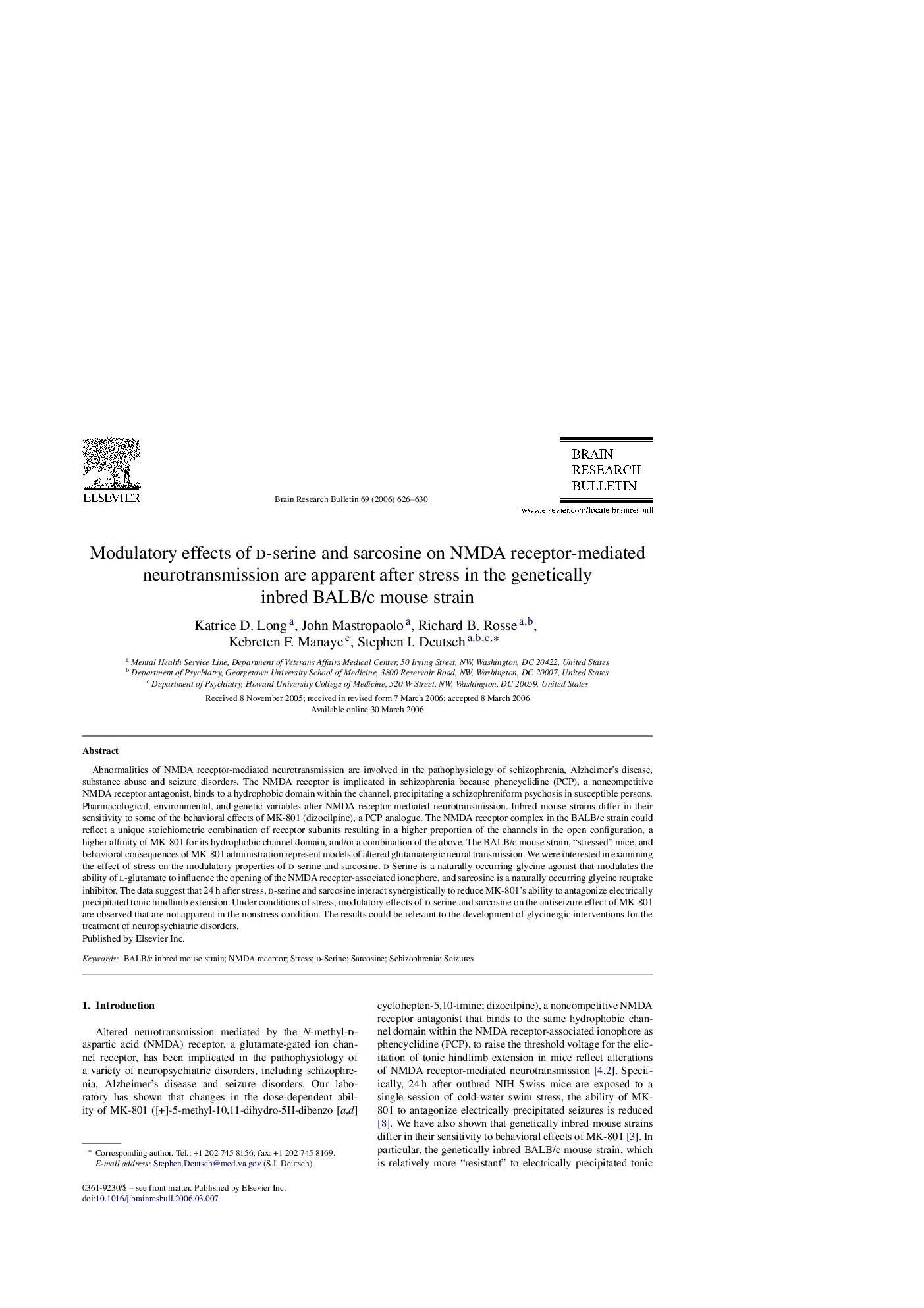| Article ID | Journal | Published Year | Pages | File Type |
|---|---|---|---|---|
| 4320312 | Brain Research Bulletin | 2006 | 5 Pages |
Abnormalities of NMDA receptor-mediated neurotransmission are involved in the pathophysiology of schizophrenia, Alzheimer's disease, substance abuse and seizure disorders. The NMDA receptor is implicated in schizophrenia because phencyclidine (PCP), a noncompetitive NMDA receptor antagonist, binds to a hydrophobic domain within the channel, precipitating a schizophreniform psychosis in susceptible persons. Pharmacological, environmental, and genetic variables alter NMDA receptor-mediated neurotransmission. Inbred mouse strains differ in their sensitivity to some of the behavioral effects of MK-801 (dizocilpine), a PCP analogue. The NMDA receptor complex in the BALB/c strain could reflect a unique stoichiometric combination of receptor subunits resulting in a higher proportion of the channels in the open configuration, a higher affinity of MK-801 for its hydrophobic channel domain, and/or a combination of the above. The BALB/c mouse strain, “stressed” mice, and behavioral consequences of MK-801 administration represent models of altered glutamatergic neural transmission. We were interested in examining the effect of stress on the modulatory properties of d-serine and sarcosine. d-Serine is a naturally occurring glycine agonist that modulates the ability of l-glutamate to influence the opening of the NMDA receptor-associated ionophore, and sarcosine is a naturally occurring glycine reuptake inhibitor. The data suggest that 24 h after stress, d-serine and sarcosine interact synergistically to reduce MK-801's ability to antagonize electrically precipitated tonic hindlimb extension. Under conditions of stress, modulatory effects of d-serine and sarcosine on the antiseizure effect of MK-801 are observed that are not apparent in the nonstress condition. The results could be relevant to the development of glycinergic interventions for the treatment of neuropsychiatric disorders.
